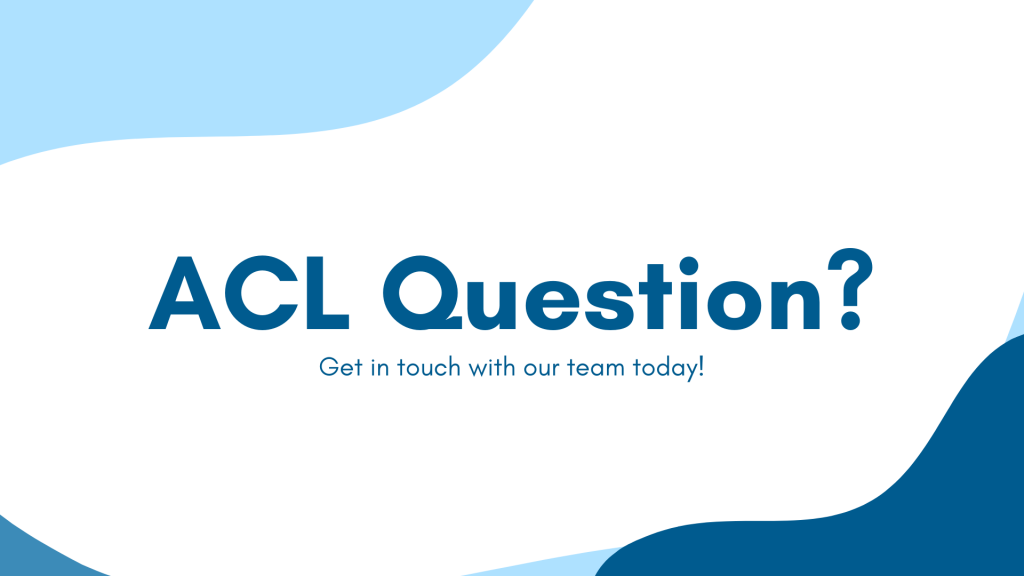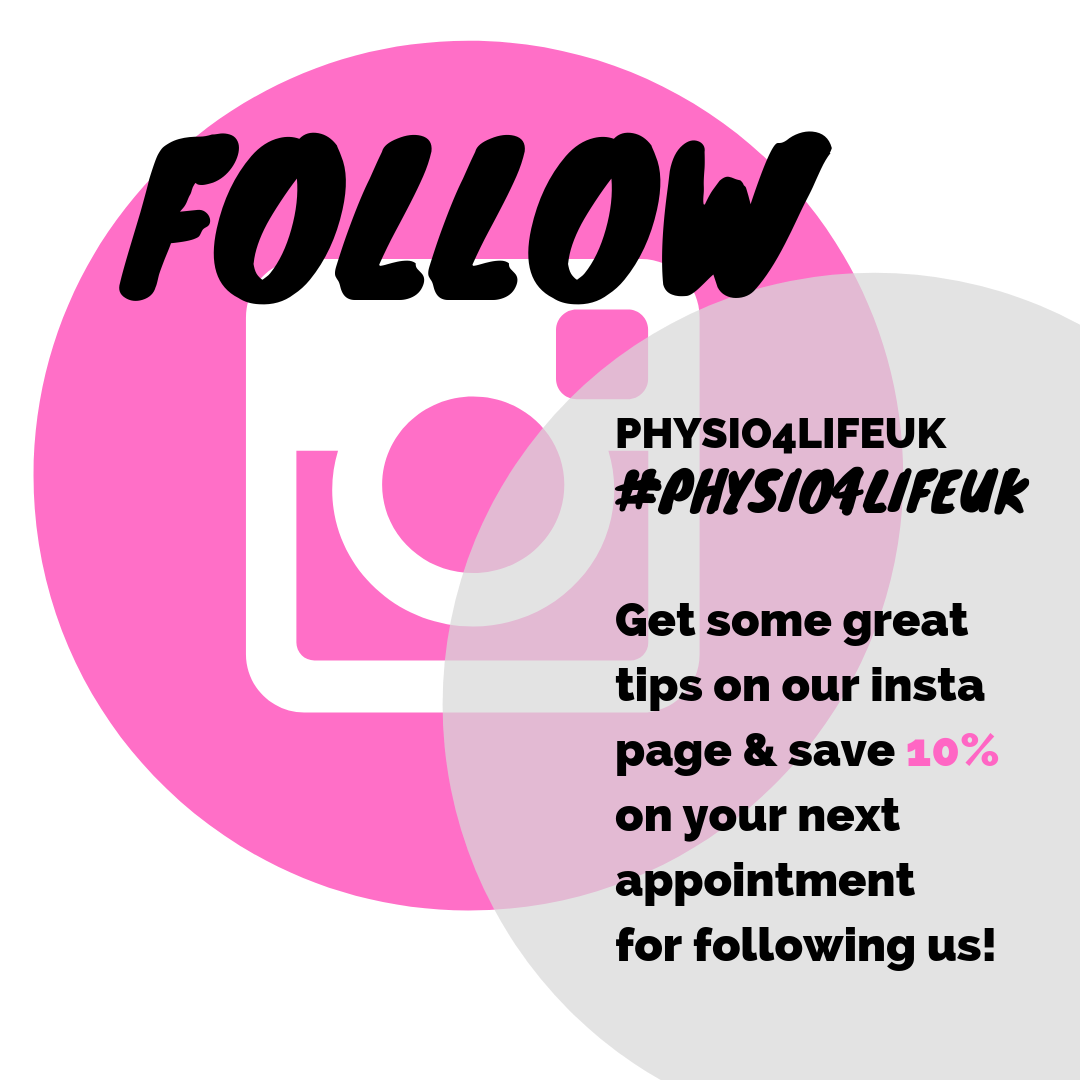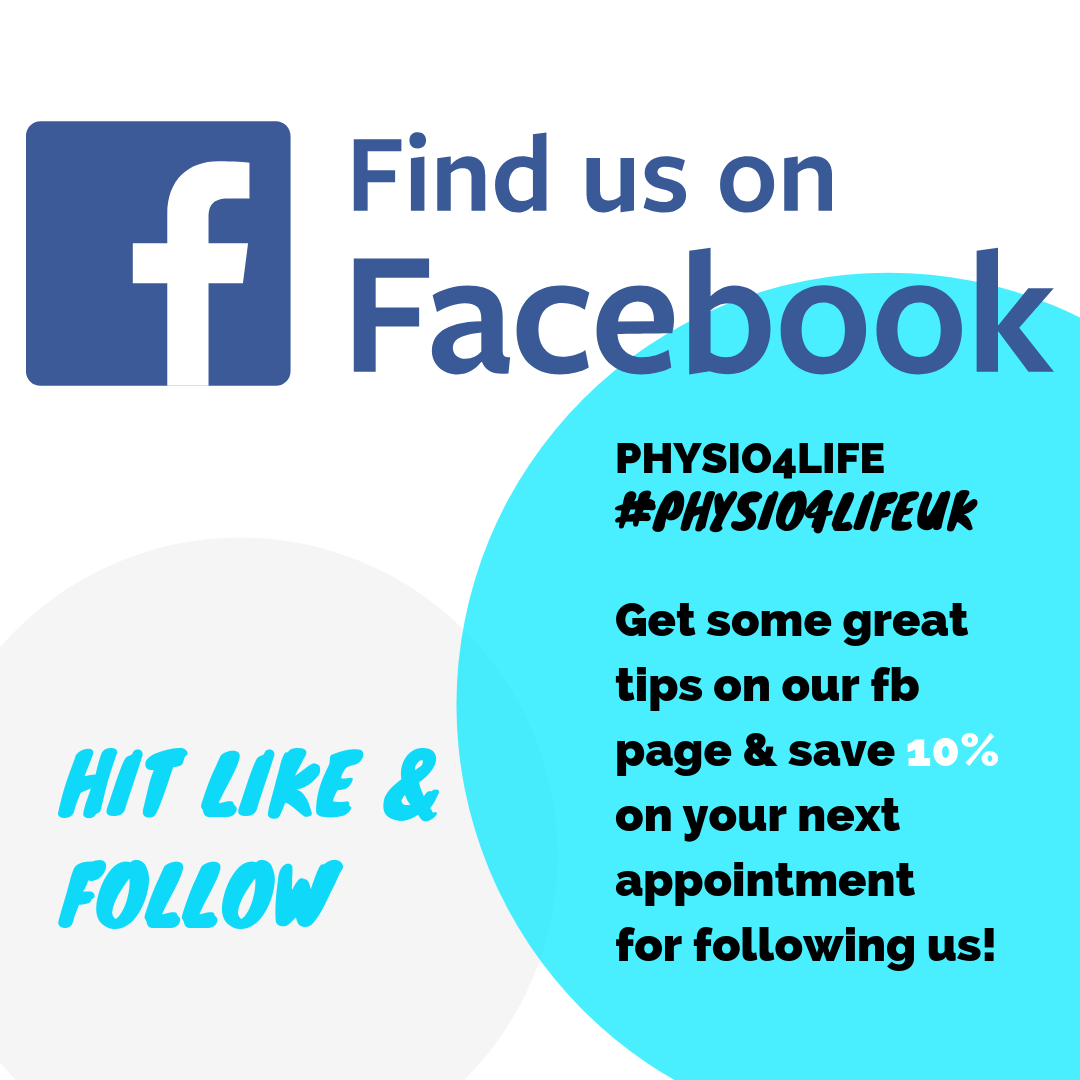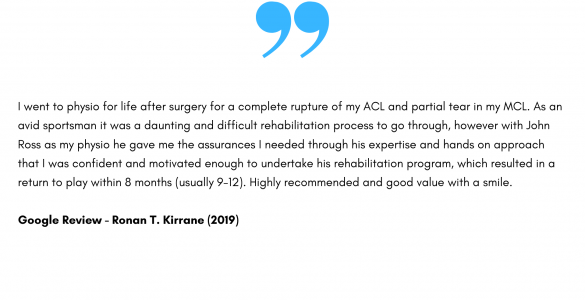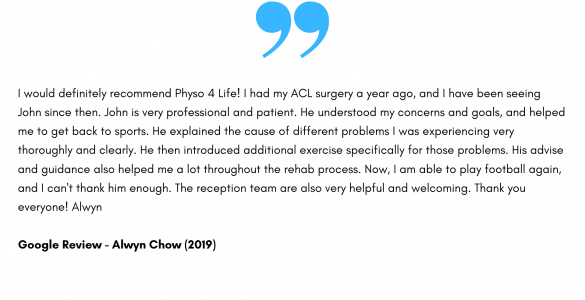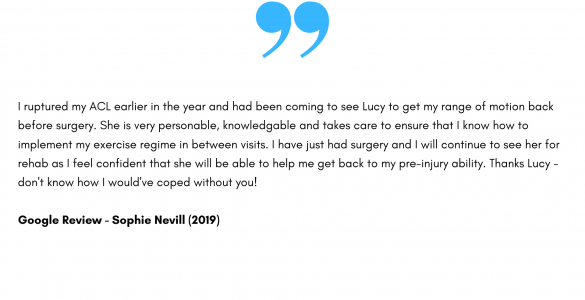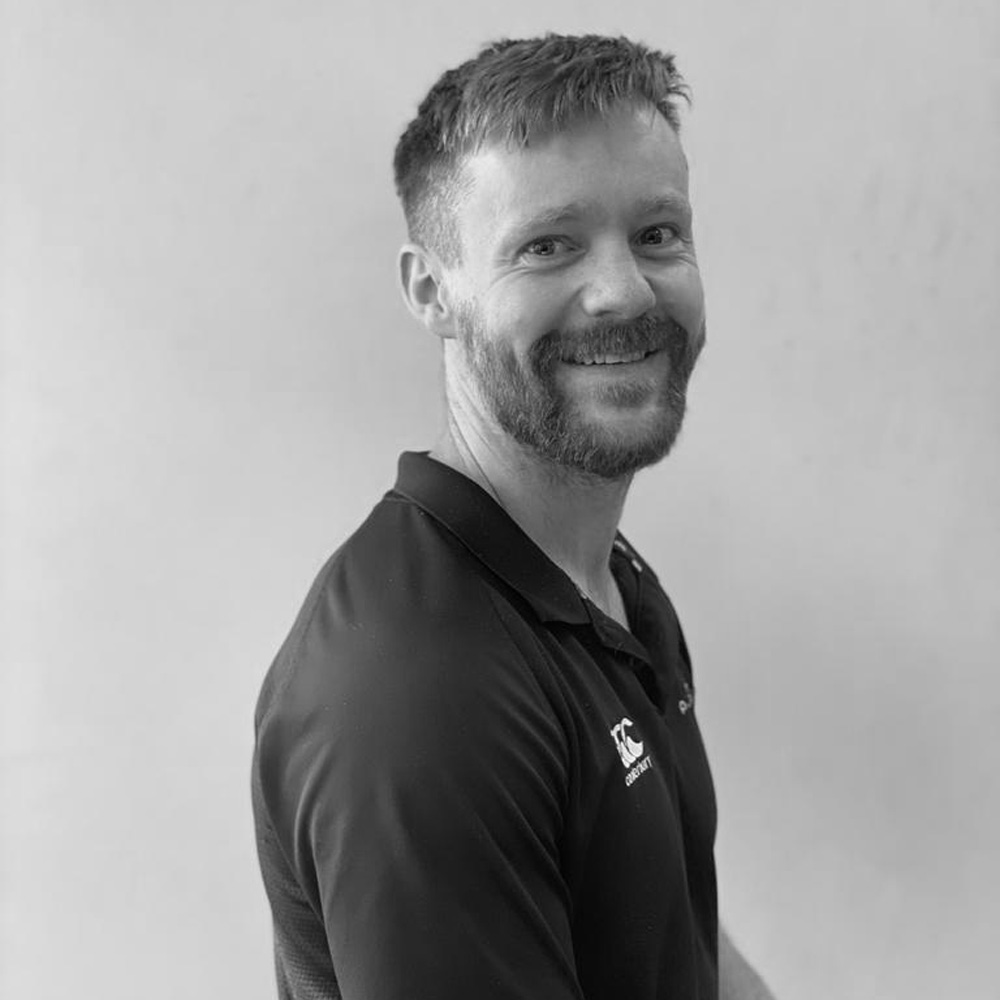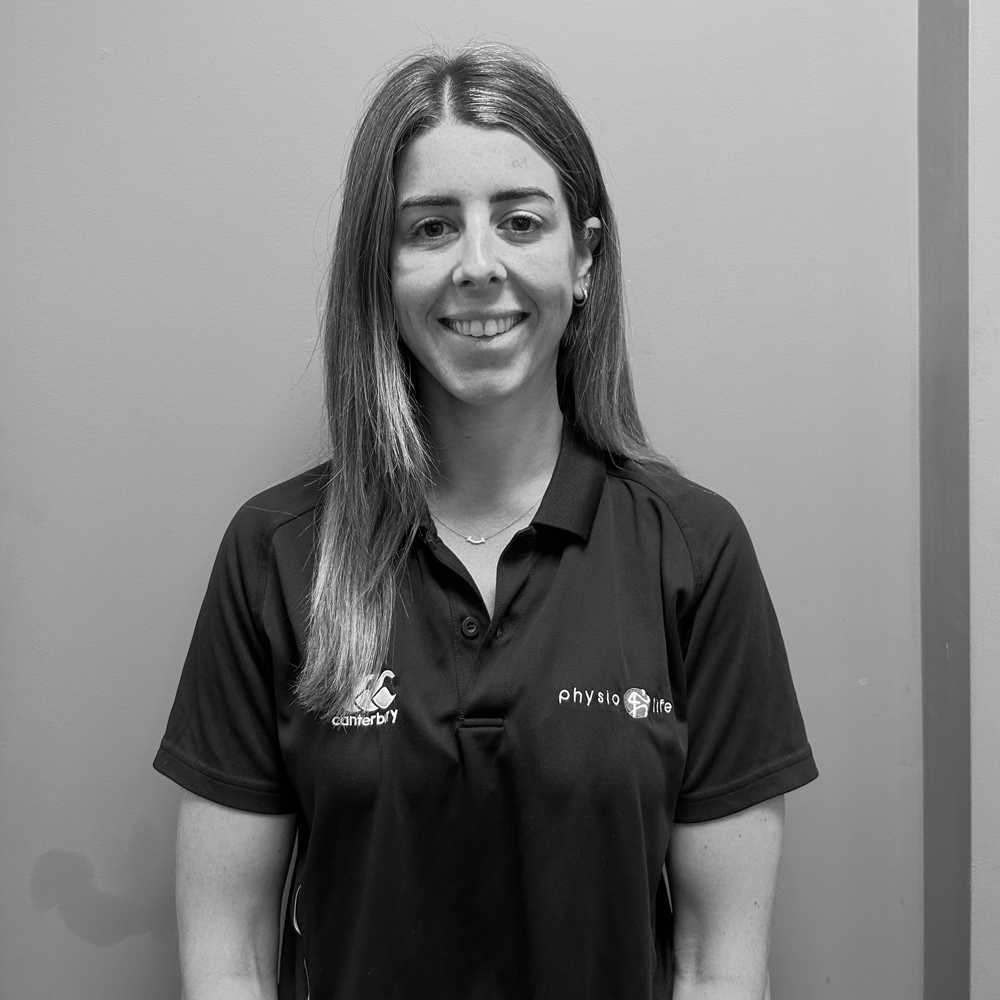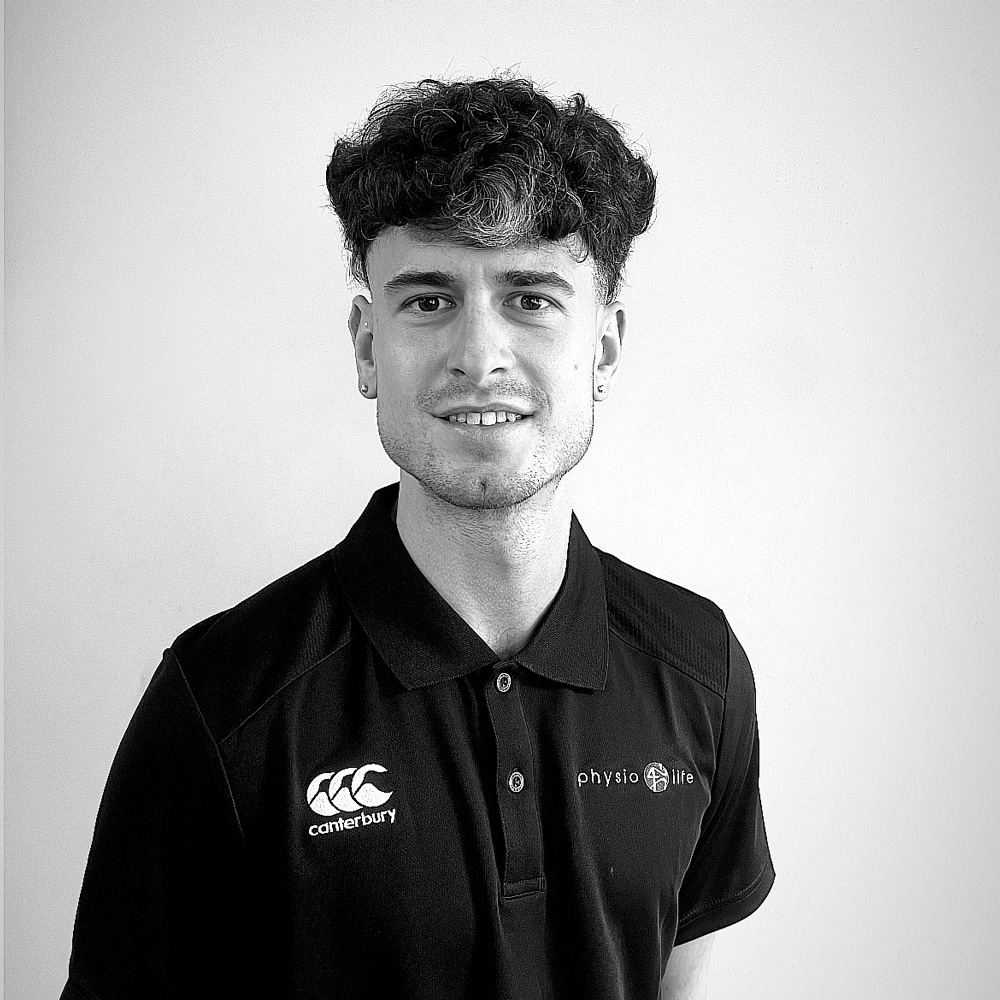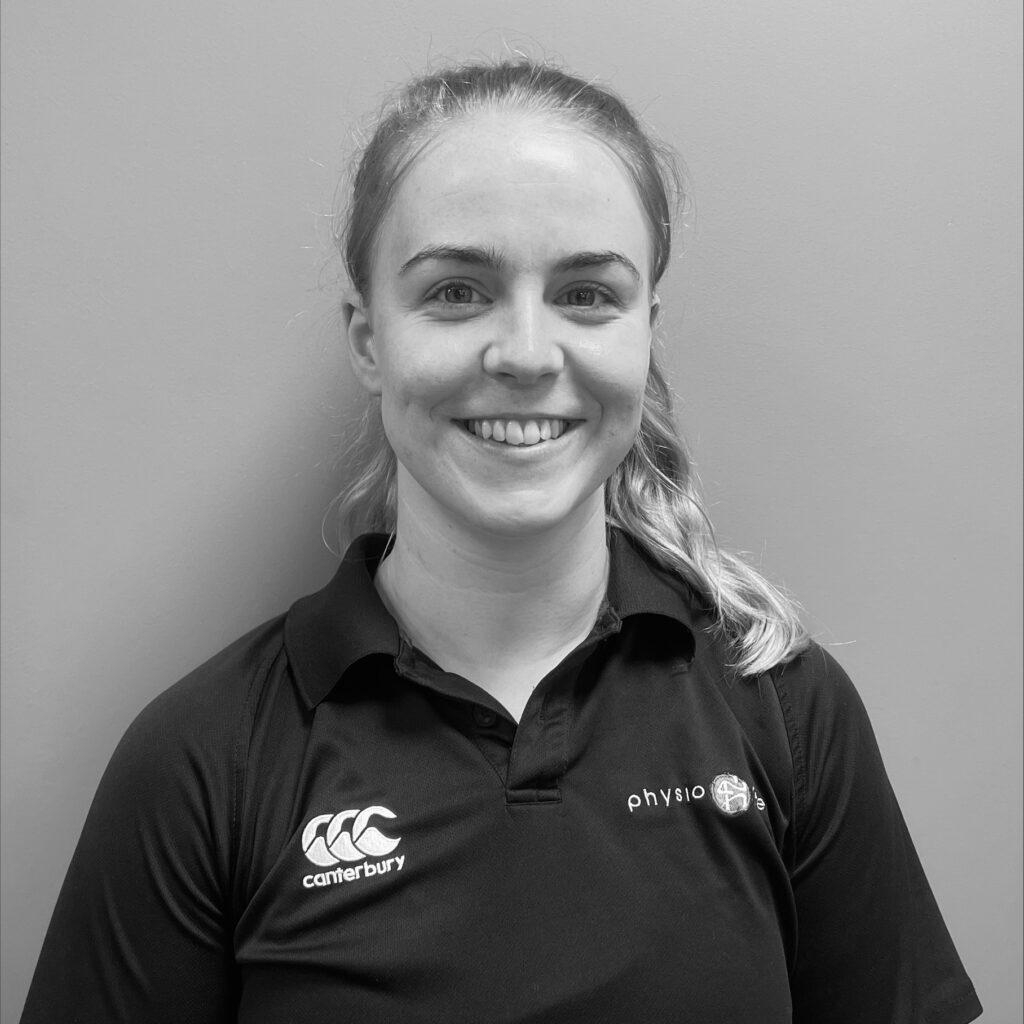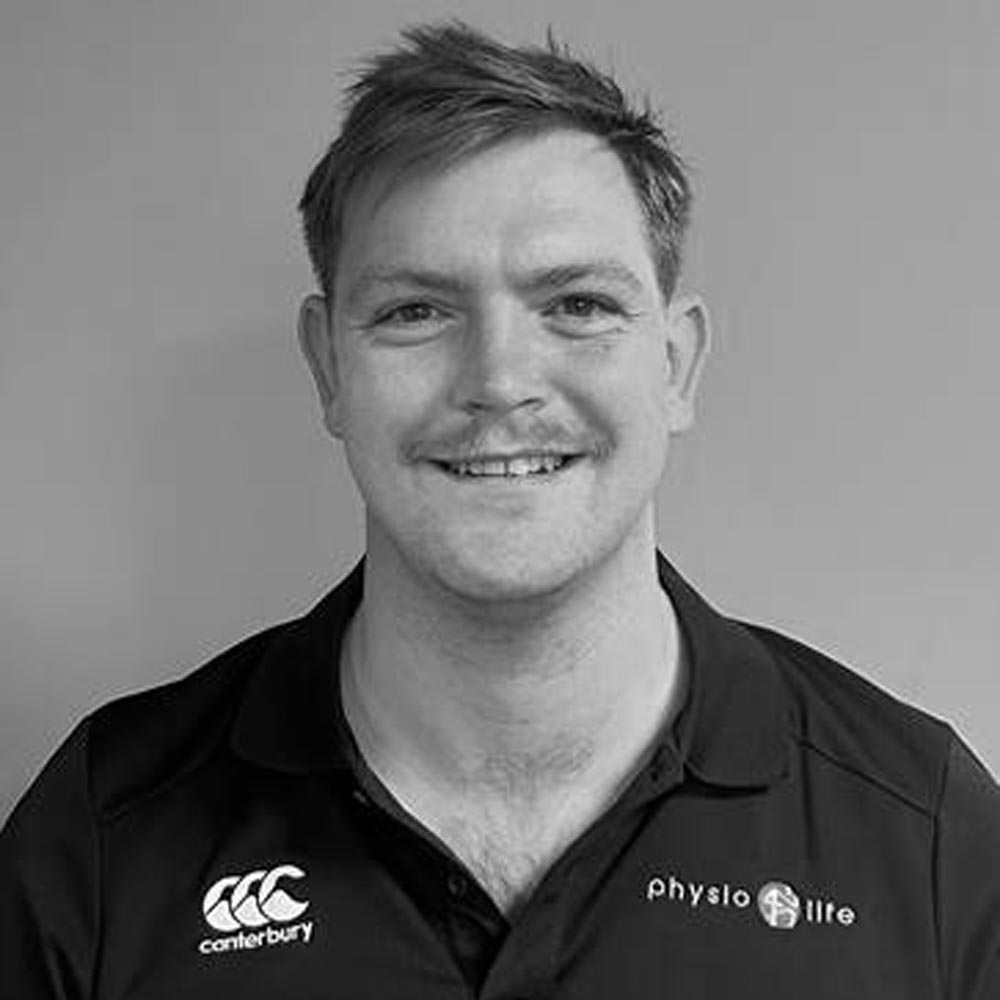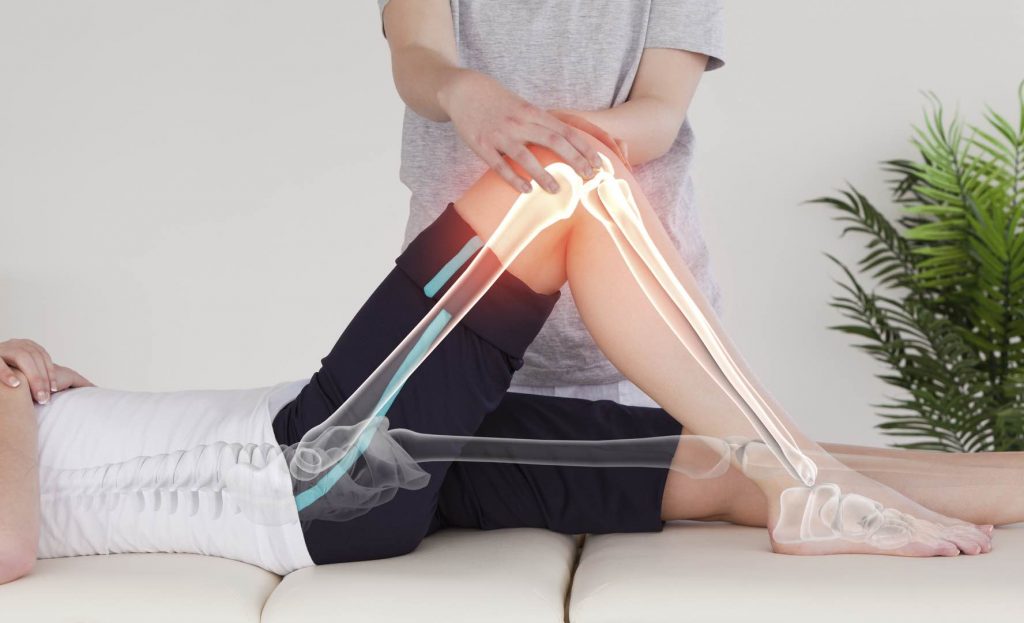
Meet Our Physio Team
Our Latest Patient Reviews
[google-reviews-pro place_id=ChIJUcQIWgUPdkgRpmi7KkyWjro auto_load=true rating_snippet=true pagination=2 sort=1 min_filter=5]
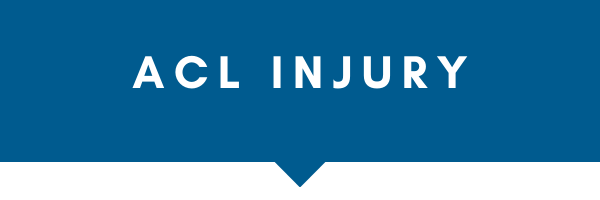
The ACL (anterior cruciate ligament) is one of the ligaments that stabilize the knee joint. The other ligaments are the PCL (posterior cruciate ligament), the MCL (medial collateral ligament), and LCL (lateral collateral ligament). The ACL and PCL connect your thigh bone (femur) to your shin bone (tibia). The ACL prevents the tibia from sliding out in front of the femur, as well as providing rotational stability to the knee.
On either side of the joint, between the cartilage surfaces of the femur and tibia, are the medial meniscus and lateral meniscus. The menisci act as shock absorbers and work with the cartilage to reduce the stresses and loads between the tibia and the femur.
ACL injuries most commonly occur during sports such as soccer, basketball, football and downhill skiing where the below activities may occur:
- Suddenly slowing down and changing direction (cutting)
- Pivoting with your foot planted on the ground
- Landing from a jump incorrectly
- Stopping suddenly
- Receiving a direct impact on your knee, such as a football tackle.
Symptoms
Depending on the severity of your ACL injury the signs and symptoms you may have are:
- A loud “pop” or a “popping” sensation in the knee
- Immediate swelling
- Severe pain and loss of range of motion
- You may feel that your knee is giving way or that it is unstable.
If you have experienced any of these symptoms you should visit your doctor or physiotherapist. During your first visit, the clinician will take a thorough history of how the injury happened.
You will receive a physical examination, where all the structures of the injured and uninjured knee joint are going to be tested. Most ligament injuries can be diagnosed with a thorough physical examination of the knee.
If the clinician suspects a tear into your ligaments, then will refer you for a Magnetic resonance imaging (MRI) scan. This study creates better images of soft tissues like the anterior cruciate ligament.
Depending on the severity of your ACL injury, treatment may include rest and rehabilitation exercises to help you regain strength and stability. If surgery is required to replace the torn ligament then a prehab (program before the operation) and a rehabilitation plan after the ACL reconstruction is necessary.
